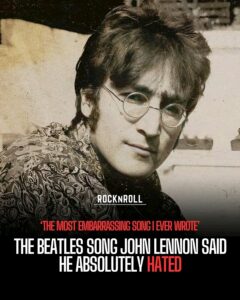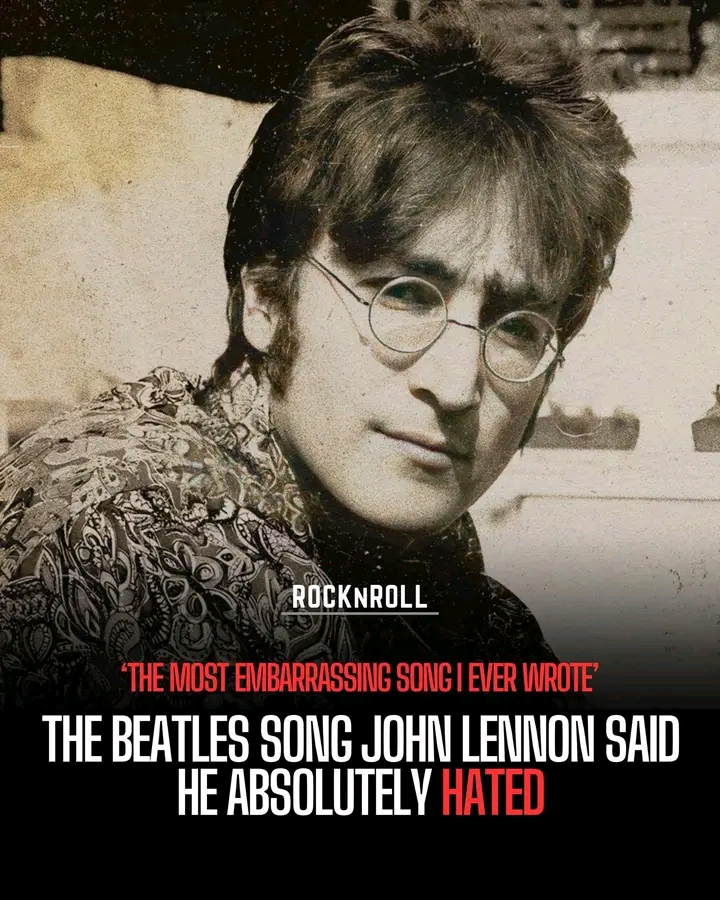For millions of music lovers, The Beatles’ discography represents one of the most iconic and influential catalogs in music history. From groundbreaking albums like Revolver and Sgt. Pepper’s Lonely Hearts Club Band to timeless classics such as Let It Be and Hey Jude, their work has stood the test of time. Yet John Lennon, one of the band’s principal songwriters and a figure revered as a musical genius, was notoriously self-critical of his own creations. In interviews, Lennon frequently dismissed tracks that fans adored, often expressing embarrassment over songs he believed lacked depth or artistic merit. Among all his critiques, one song in particular stood out as his personal low point: It’s Only Love.

Released in 1965 on the Help! album, It’s Only Love was intended as a simple love song, filling space in a rapidly produced album during the height of Beatlemania. To casual listeners, it seemed harmless enough—a sweet tune carried by Lennon’s unmistakable voice and the band’s signature harmonies. However, Lennon despised both the lyrics and the overall composition, later describing it as “lousy” and “abysmal.” He felt the song’s words were shallow and uninspired, calling them some of the weakest he ever wrote. This level of criticism from Lennon wasn’t unusual; he was known for his blunt assessments, even of the band’s most celebrated work. But his disdain for It’s Only Love was particularly strong, cementing it as his greatest songwriting regret.
This insight into Lennon’s artistic perfectionism offers fans a fascinating glimpse into The Beatles’ creative process. The band was working under immense pressure in 1965, producing albums at lightning speed while juggling tours and media appearances. Songs like It’s Only Love were sometimes rushed, crafted under tight deadlines that left little room for refinement. Despite Lennon’s harsh self-judgment, the track has its defenders. Many fans argue that its dreamy melody and straightforward lyrics capture a certain charm reflective of the era.
Ultimately, Lennon’s view of It’s Only Love serves as a reminder that even the greatest artists can be their own harshest critics. What he saw as a throwaway song has become part of a legendary body of work that continues to resonate with audiences nearly 60 years later. For Beatles fans, the song is less a failure and more a testament to the band’s incredible productivity and evolution during their early years.


